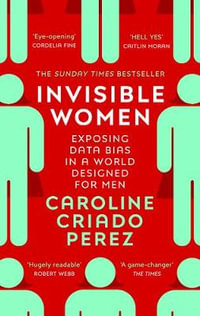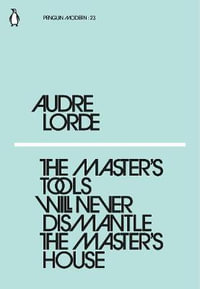
The Science Question in Feminism
Industrial Policy in Europe
Paperback | 14 May 1986
At a Glance
Paperback
Limited Stock Available
RRP $72.22
$69.50
When will this arrive by?
Can science, steeped in Western, masculine, bourgeois endeavors, nevertheless be used for emancipatory ends? In this major contribution to the debate over the role gender plays in the scientific enterprise, Sandra Harding pursues that question, challenging the intellectual and social foundations of scientific thought.
Harding provides the first comprehensive and critical survey of the feminist science critiques, and examines inquiries into the androcentricism that has endured since the birth of modern science. Harding critiques three epistemological approaches: feminist empiricism, which identifies only bad science as the problem; the feminist standpoint, which holds that women's social experience provides a unique starting point for discovering masculine bias in science; and feminist postmodernism, which disputes the most basic scientific assumptions. She points out the tensions among these stances and the inadequate concepts that inform their analyses, yet maintains that the critical discourse they foster is vital to the quest for a science informed by emancipatory morals and politics.
Can science, steeped in Western, masculine, bourgeois endeavors, nevertheless be used for emancipatory ends? In this major contribution to the debate over the role gender plays in the scientific enterprise, Sandra Harding pursues that question, challenging the intellectual and social foundations of scientific thought.Harding provides the first comprehensive and critical survey of the feminist science critiques, and examines inquiries into the androcentricism that has endured since the birth of modern science. Harding critiques three epistemological approaches: feminist empiricism, which identifies only bad science as the problem; the feminist standpoint, which holds that women's social experience provides a unique starting point for discovering masculine bias in science; and feminist postmodernism, which disputes the most basic scientific assumptions. She points out the tensions among these stances and the inadequate concepts that inform their analyses, yet maintains that the critical discourse they foster is vital to the quest for a science informed by emancipatory morals and politics.
Industry Reviews
ISBN: 9780801493638
ISBN-10: 0801493633
Published: 14th May 1986
Format: Paperback
Language: English
Number of Pages: 296
Audience: Professional and Scholarly
For Ages: 18+ years old
Publisher: CORNELL UNIV PR
Country of Publication: GB
Dimensions (cm): 23 x 15 x 2
Weight (kg): 0.43
Shipping
| Standard Shipping | Express Shipping | |
|---|---|---|
| Metro postcodes: | $9.99 | $14.95 |
| Regional postcodes: | $9.99 | $14.95 |
| Rural postcodes: | $9.99 | $14.95 |
How to return your order
At Booktopia, we offer hassle-free returns in accordance with our returns policy. If you wish to return an item, please get in touch with Booktopia Customer Care.
Additional postage charges may be applicable.
Defective items
If there is a problem with any of the items received for your order then the Booktopia Customer Care team is ready to assist you.
For more info please visit our Help Centre.
You Can Find This Book In
This product is categorised by
- Non-FictionSociety & CultureSocial Issues & ProcessesFeminism & Feminist Theory
- Non-FictionScienceScience in GeneralHistory of Science
- Non-FictionPhilosophyEpistemology & The Theory of Knowledge
- BargainsNon-Fiction BargainsHistory Bargains
- BargainsNon-Fiction BargainsScience Bargains
- BargainsNon-Fiction BargainsPhilosophy Book Bargains























